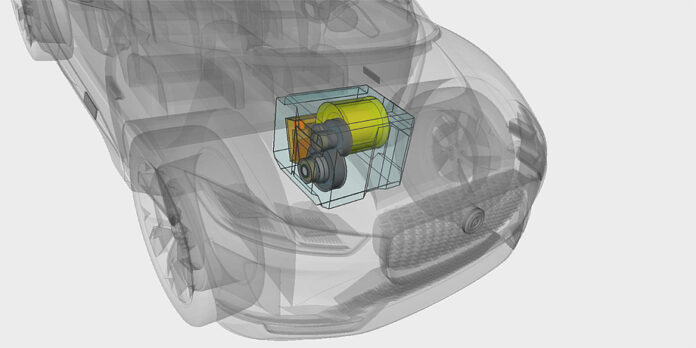The advancement of electric vehicle (EV) powertrain technology is a crucial factor in the transition to sustainable mobility. Researchers at Graz University of Technology (TU Graz) have developed an AI-based optimization system called OPED (Optimisation of Electric Drives) to significantly accelerate the design process of EV powertrains. Traditional development methods are time-consuming and costly, but OPED streamlines this process by integrating simulation models with evolutionary optimization algorithms. This AI system can automatically refine and optimize an entire powertrain—including power electronics, the electric motor, and the transmission—based on manufacturers’ technical requirements. By balancing factors such as cost, efficiency, and space constraints, OPED enables engineers to achieve optimal designs in a fraction of the time. Already in use by a leading Austrian automotive supplier, this innovation represents nearly a decade of research and development at TU Graz.
One of the key advantages of OPED is its ability to dramatically reduce the complexity of powertrain design. Engineers traditionally spend months iterating on individual components, as minor changes in one part can have ripple effects across the entire system. OPED, however, automates this process by analyzing and comparing hundreds of thousands of design variations in just a day. The system identifies the best-performing configurations based on predefined manufacturer priorities, allowing engineers to focus on high-level decision-making rather than extensive manual calculations. Additionally, the software has been enhanced to incorporate sustainability metrics, evaluating CO2 emissions from both production and usage. This ensures that environmental impact is considered early in the development phase, aligning with the automotive industry’s increasing emphasis on sustainability.
Beyond individual powertrain designs, OPED also supports the optimization of entire vehicle platforms. Through recent research, the system has been expanded to identify standardized components that can be used across multiple vehicle models, reducing both development time and production costs. This modular approach enhances efficiency by allowing manufacturers to reuse key powertrain elements, ultimately leading to more cost-effective and scalable EV production. The innovative contributions of the OPED project have been widely recognized, earning its developers, Martin Hofstetter and Dominik Lechleitner, prestigious awards such as the VDI Prize 2024 and the Kamm-Jante Medal. As OPED continues to evolve, its potential applications extend beyond powertrains, offering promising solutions for broader product development challenges within the automotive sector.







